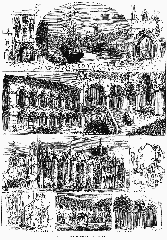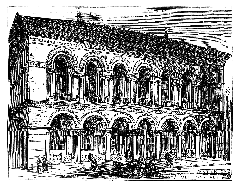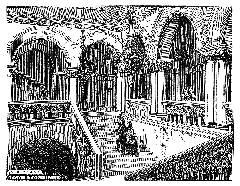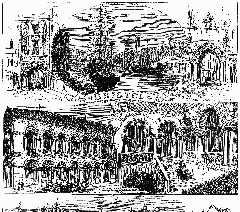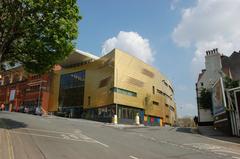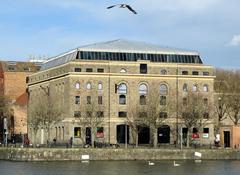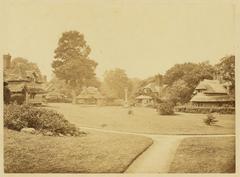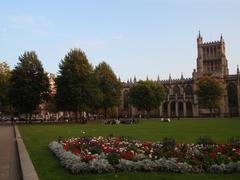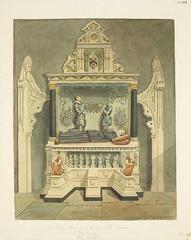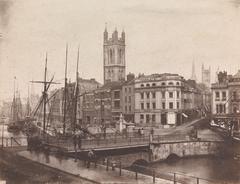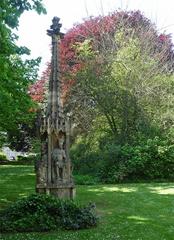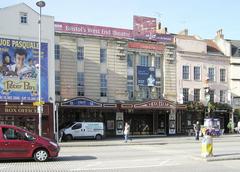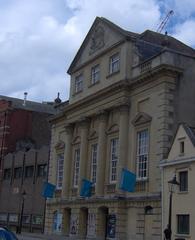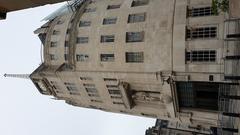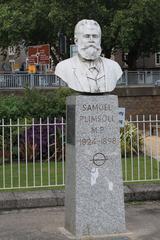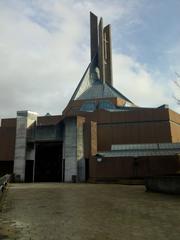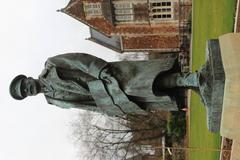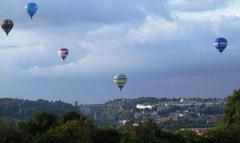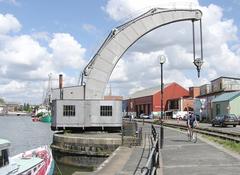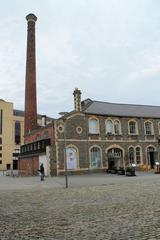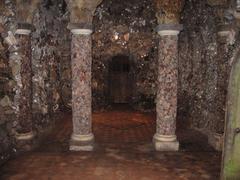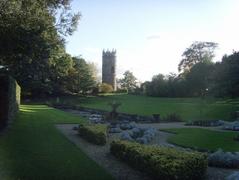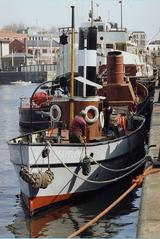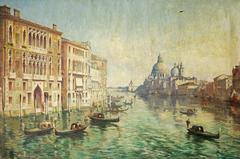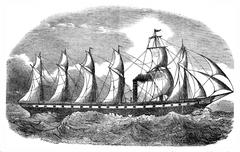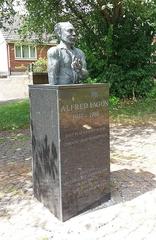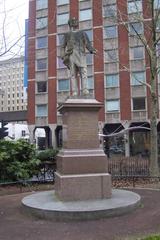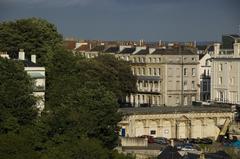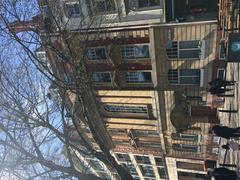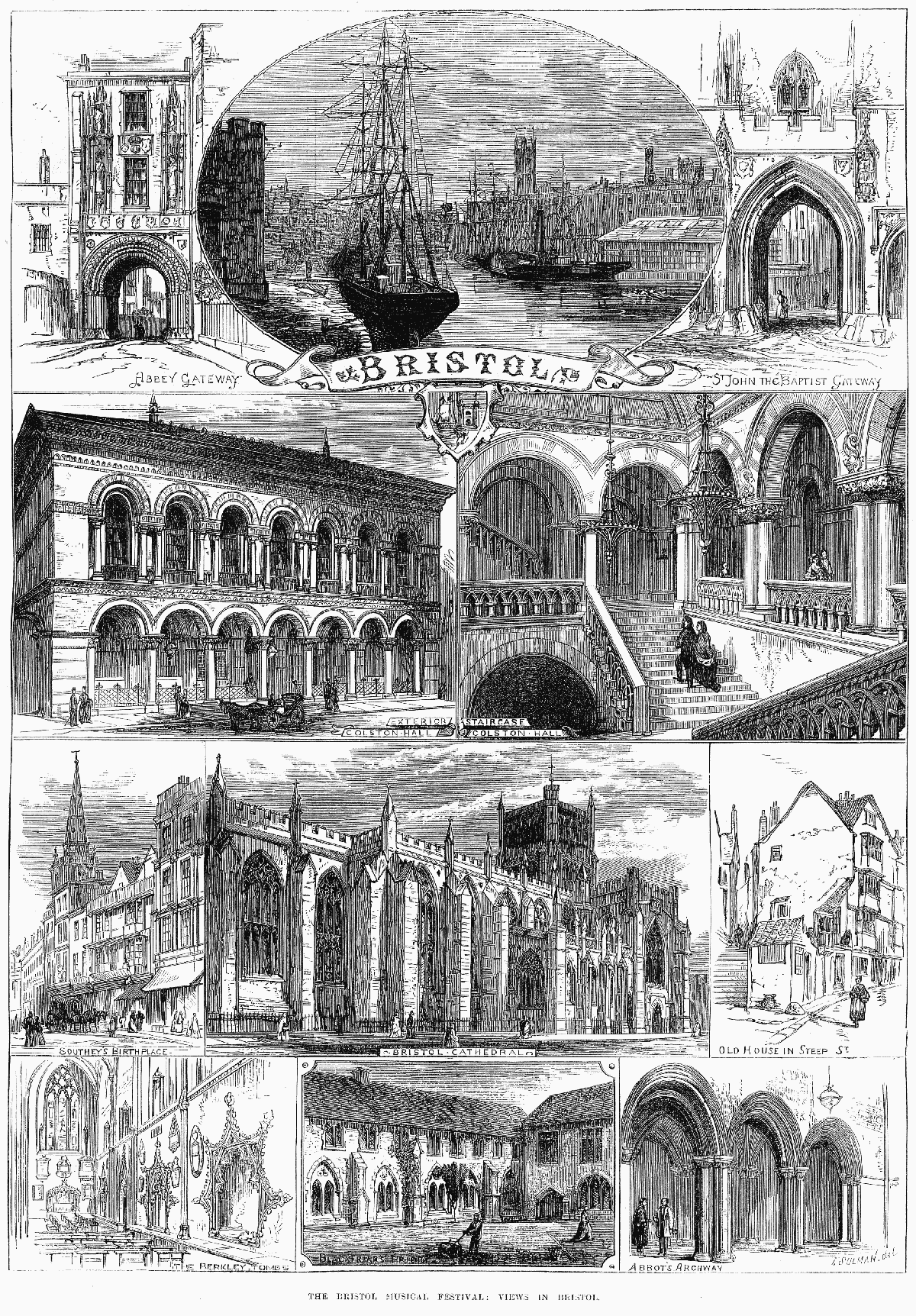
Bristol Beacon Visiting Hours, Tickets, and Visitor Guide
Date: 15/06/2025
Introduction: Bristol Beacon’s History and Significance
Bristol Beacon, a landmark at the heart of Bristol, is celebrated for its seamless blend of Victorian heritage and contemporary design. Established as Colston Hall in 1867, the venue has been a cornerstone for music, arts, and community engagement, hosting everything from grand orchestral performances to modern festivals. Its Bristol Byzantine architecture, recently revitalized through a £132 million refurbishment completed in 2023, stands as a testament to the city’s mercantile past and evolving cultural landscape. Renamed Bristol Beacon in 2020 to reflect inclusivity and progress, it remains a beacon of unity for Bristol’s diverse community, offering over 800 events annually and fostering music education and social impact (Bristol Beacon: Our History; Willmott Dixon; Levitt Bernstein).
Table of Contents
- Origins and Early Development
- Architectural Evolution and Restoration
- Cultural Significance and Community Role
- Renaming and Recontextualization
- Notable Events and Performances
- Visitor Information: Visiting Hours, Tickets, and Accessibility
- Architectural Features and Visitor Experience
- Frequently Asked Questions
- Practical Visitor Tips
- Notable Upcoming Events
- Call to Action and Contact Information
- References
Origins and Early Development (1867–1898)
Bristol Beacon, originally Colston Hall, opened on 20 September 1867. Designed by Foster and Wood, it was constructed in the distinctive Bristol Byzantine style, with ornate masonry and Italianate details. The main concert hall was built atop two levels of bonded storage cellars, once linked to Bristol’s docks—a nod to the city’s mercantile roots. In 1873, the addition of the Lantern Hall and new entrance facilities cemented its status as a premier public venue (Bristol Beacon: Our History; Willmott Dixon; Levitt Bernstein).
Architectural Evolution and Restoration
Victorian Grandeur and Challenges
The original main hall, a marvel of Victorian design, suffered a devastating fire in 1898 that destroyed its interior but spared the Lantern building. The hall was subsequently rebuilt multiple times, each reconstruction preserving the external walls and cellars while updating the interior to modern standards (Willmott Dixon).
20th-Century Adaptations
Despite surviving the Bristol Blitz, the venue’s facilities lagged behind modern expectations by the late 20th century, necessitating substantial upgrades.
21st-Century Transformation
A two-phase redevelopment brought Bristol Beacon into the 21st century. The first phase (2009) introduced the Bridgehouse foyer, improving access and adding informal performance spaces and amenities (Levitt Bernstein; e-architect). The second phase, completed in 2023, delivered:
- A rebuilt Beacon Hall interior with advanced acoustics and flexible seating
- Restoration of Lantern Hall and addition of a new cellar performance space
- Modern technical infrastructure
- Reopened Byzantine colonnades enhancing the street presence (Willmott Dixon; Levitt Bernstein)
This thoughtful restoration preserves Bristol’s heritage while positioning the venue as a future-facing cultural hub (e-architect).
Cultural Significance and Community Role
A Platform for Diverse Voices
For over 150 years, Bristol Beacon has championed musical diversity and community engagement, hosting genres from classical to contemporary, and serving as a festival anchor for events like the BBC Proms and Simple Things (Bristol Beacon: What’s On; Kingfisher Visitor Guides).
Music Education and Social Impact
The venue’s cellars now house the Bristol Water Sound Studios, supporting up to 30,000 children annually through programs like ‘Bristol Plays Music’ (Willmott Dixon; Explorial). Commitment to inclusivity is evident in accessible design and broad programming.
Renaming and Recontextualization
In 2020, public consultation led to renaming Colston Hall as Bristol Beacon, signaling a break from Edward Colston’s legacy and embracing a new identity rooted in hope, inclusivity, and unity (Bristol Beacon: Our History; Explorial).
Notable Events and Performances
Bristol Beacon has hosted legendary acts including The Beatles, David Bowie, Ella Fitzgerald, and Louis Armstrong, as well as regular performances by leading orchestras. Its flexible spaces—Beacon Hall, Lantern Hall, and the cellar venue—accommodate varied events, from intimate recitals to major concerts (Levitt Bernstein; e-architect).
Visitor Information: Visiting Hours, Tickets, and Accessibility
Visiting Hours
- Venue Opening: Generally 8:00 AM–6:00 PM daily; opens 60–90 minutes before events.
- Box Office: Tuesday 12:00–17:00; Wednesday–Friday 10:00–17:00; Monday, Saturday, Sunday 14:00–17:00 on event days (Bristol Beacon – Opening Times).
Tickets and Booking
- Purchase online via the official website, by phone (+44 117 203 4040), or in person at the box office.
- Prices vary by event and seat; discounts available for students, seniors, and Access Register members.
- Early booking is recommended; e-tickets support contactless entry.
Directions and Parking
- Address: Trenchard Street, Bristol, BS1 5AR, UK
- By Train: Bristol Temple Meads, 1.6 km away (National Rail Enquiries)
- By Bus/Coach: 250m from city centre bus stop; 800m from bus and coach station
- By Car: Trenchard Street car park (50m behind venue); within Bristol Clean Air Zone (IOA Event Info)
- By Boat: Bristol Ferry Boats, City Centre stop 350m away (Bristol Ferry Boats)
- By Bike/E-Scooter: Racks and TIER parking on site
Accessibility
- Step-free access, accessible toilets, induction loops, and reserved seating
- Assistance dogs welcome; lifts to all levels
- Access Register allows priority bookings and free Personal Assistant tickets (Bristol Beacon – Access Information)
Nearby Attractions
- Bristol Cathedral, Harbourside, SS Great Britain, Queen Square, and Bristol Museum & Art Gallery are all within walking distance (Visit Bristol – Things to Do).
Architectural Features and Visitor Experience
The venue’s restored Byzantine façade, illuminated dome, and decorative colonnades present a striking welcome. Inside, historic masonry contrasts with contemporary timber-lined balconies and advanced acoustics. Amenities include the Bristol Loaf Café, Colonnade Restaurant, multiple bars, cloakroom, and free Wi-Fi (Willmott Dixon; Levitt Bernstein; Kingfisher Visitor Guides).
Visitors can preview the venue through virtual tours and high-quality images on the official website, with descriptive alt text for accessibility.
Frequently Asked Questions (FAQs)
Q: What are the visiting hours?
A: Generally 8:00 AM–6:00 PM, opening earlier for events. Check the official website for specifics.
Q: How can I buy tickets?
A: Online, by phone, or at the box office. Early booking is recommended.
Q: Is the venue accessible?
A: Yes, with step-free access, accessible toilets, hearing assistance, and reserved seating for wheelchair users.
Q: Where can I park?
A: Trenchard Street car park is 50m away. Be aware of Clean Air Zone charges.
Q: Are guided tours available?
A: Offered occasionally—check the official website for availability.
Q: Can I visit without attending an event?
A: Public spaces are open during regular hours; guided tours available on select days.
Q: Are there food and drink options on site?
A: Yes, including a café and restaurant; bars open for events.
Practical Visitor Tips
- Arrive Early: Doors open 30–90 minutes before events.
- Travel Light: Large bags discouraged; cloakroom available.
- Accessible Amenities: Register for the Access Register in advance.
- Stay Connected: Use free Wi-Fi and sign up for email updates (Bristol Beacon – Email Updates).
- Check Policies: Photography and refund policies vary by event.
- Explore Nearby: Combine your visit with local attractions and restaurants.
Notable Upcoming Events (2025–2026)
- Circa Waves – 23 February 2025
- Sophie Ellis-Bextor – 8 June 2025
- BBC Proms – 22–24 August 2025
- London Symphony Orchestra – 13 December 2025
- Anna Lapwood: The Britton Organ Opening Recital – 11 January 2026
(Bristol Beacon – What’s On; Bristol Post)
Sustainability and Community Engagement
Operated by Bristol Music Trust, Bristol Beacon is a registered charity committed to environmental sustainability and community outreach. Its education and creative learning programs reach thousands of young people annually, supporting Bristol’s future generations of artists (Bristol Beacon – About Us).
Call to Action and Contact Information
Ready to experience Bristol Beacon? Visit the official Bristol Beacon website for the latest visiting hours, event listings, and ticket bookings. Follow Bristol Beacon on social media for news and exclusive content. Download the Audiala app for enhanced event experiences and updates.
Contact Details:
- Address: Trenchard Street, Bristol, BS1 5AR, UK
- Phone: +44 117 203 4040
- Website: bristolbeacon.org
- Social Media: Facebook, X (Twitter), Instagram (BBC Bristol Socials)
Summary and Visitor Tips
Bristol Beacon encapsulates over 150 years of Bristol’s evolving culture, standing as a symbol of heritage preservation, innovation, and inclusivity. Its transformation from Colston Hall into a modern, accessible venue has solidified its place as a cultural epicenter, welcoming world-class artists and nurturing local talent. With excellent transport links, comprehensive accessibility, and proximity to major attractions, Bristol Beacon is an ideal destination for cultural exploration. For the most up-to-date information, visit the official Bristol Beacon website and explore local guides (Bristol Beacon: What’s On; Visit Bristol).
References
- Bristol Beacon: Our History
- Bristol Beacon Transformation – Willmott Dixon
- Bristol Beacon Phase 2 – Levitt Bernstein
- Bristol Beacon Concert Hall and Music Hub – e-architect
- Kingfisher Visitor Guides: Bristol’s Best Cultural Venues
- Explorial: The Bristol Beacon
- Visit Bristol: What’s On
